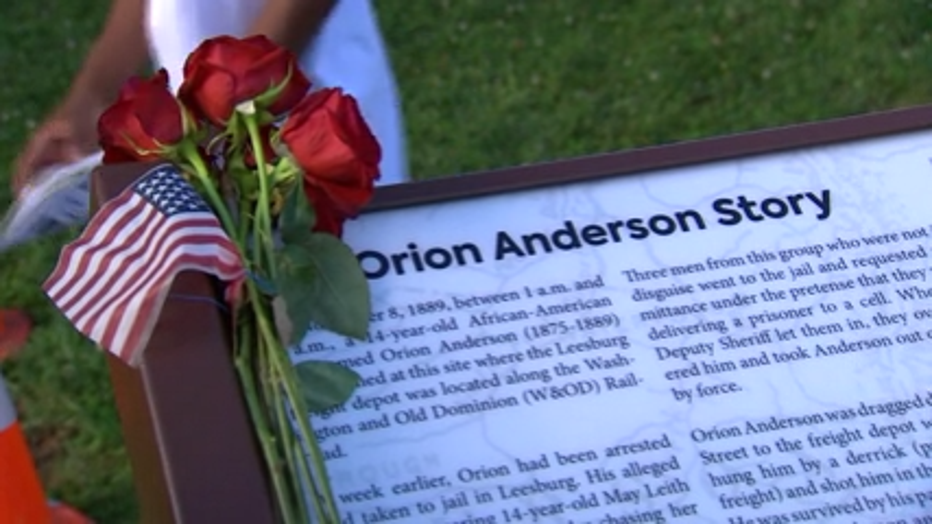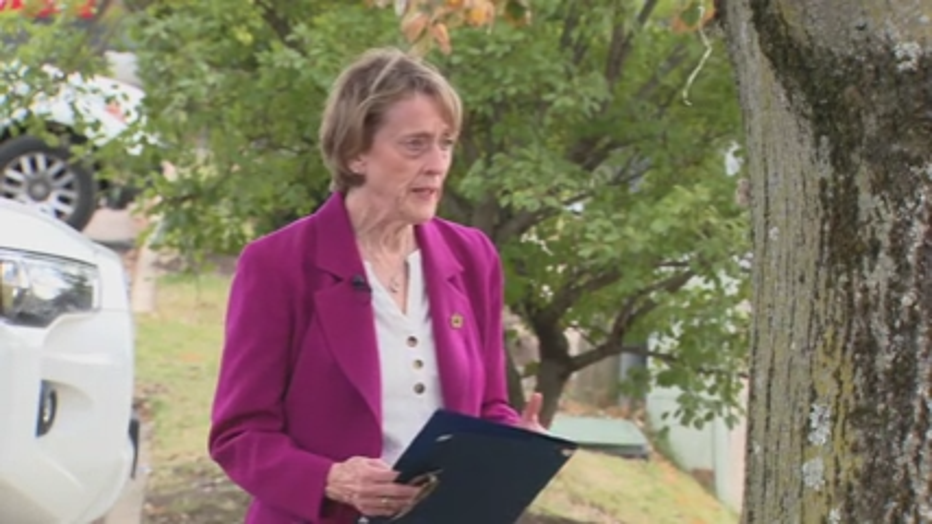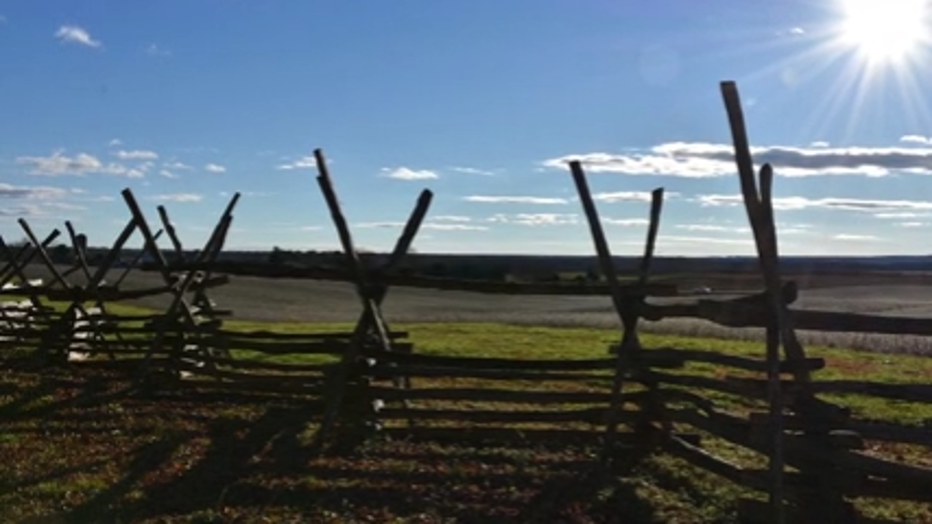Loudoun County honoring lynching victims with memorial markers
Leesburg Virginia to honor Lynching Victims
A Virginia town is working to amend injustices in America's dark past. Once commonplace in Virginia, lynchings are a reminder of the state's stained past and racist history. FOX 5's Tisha Lewis looks into how some lynching victims will be honored in Leesburg.
LEESBURG, Va. - Loudoun County leaders are taking steps to acknowledge and confront the injustices of Virginia’s history, as the community commemorates lynching victims from the Commonwealth’s past.
Virginia recorded 98 lynchings in its history, including two in Leesburg. Among the victims are 22-year-old Charles Craven, lynched in 1902, and 14-year-old Orion Anderson, killed in 1889.
Their stories, once buried, are now being shared as part of an effort to remember the lives lost to racial violence.

Craven was hanged by a mob on July 31, 1902, after being accused of killing a Confederate veteran. The mob dragged him from a jail in Leesburg, lynched him on a county road, and riddled his body with bullets.
More than a century later, Leesburg Mayor Kelly Burk, Loudoun County’s NAACP, and the Loudoun Freedom Center are working to formally honor his memory.
"The town, along with the NAACP and the Freedom Center, partnered to install a historical marker to commemorate Charles Craven," said Mayor Burk. "This was a terrible event, but we want to recognize its impact and implications so that it’s never forgotten."

The marker, an official Virginia Department of Historical Resources highway plaque, will be installed across from a former Black high school, now a community center, symbolizing the shift from tragedy to resilience.
NAACP leaders say securing state recognition for such markers is no small feat. Pastor Michelle Thomas, Loudoun County NAACP President, explained that only five markers are approved each year.
"This is our truth. This is a story that has to be told," said Pastor Thomas.
Orion Anderson, lynched at the age of 14, is another victim whose story is gaining attention. Newspaper articles from 1889 report that Anderson was accused of chasing a white girl, but the young girl could not identify him as her attacker.
Despite the lack of evidence, a mob of up to 40 men lynched him without a trial.
"This kind of racial violence didn’t just affect the person who was lynched, it terrorized entire families and communities," said Pastor Thomas.

Anderson’s descendants, who still live in Leesburg, learned of their connection to the tragedy through the NAACP’s research.
"These stories are painful, but they are also necessary for healing," said Phillip Thompson, former president of the Loudoun County NAACP. "We want to ensure these memorials are in place, so people understand the true history of the South — not just the Civil War, but what came after."
As part of this initiative, Loudoun County leaders hope to install markers for all 98 lynching victims across Virginia within the next five years. Craven’s marker is expected to be in place by 2025.
"Black history is American history," said Mayor Burk. "While we’re ashamed of this part of our past, it’s important to confront it, learn from it, and ensure it’s never forgotten."

